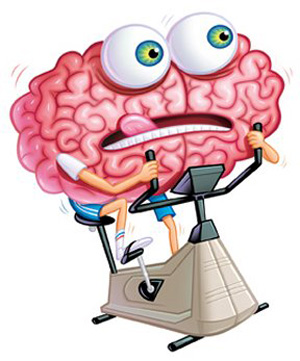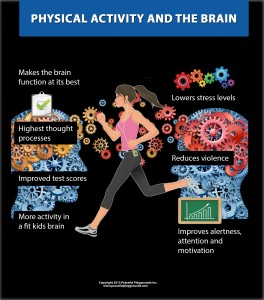 For most of my life, I was under the delusion that it really didn’t matter what I ate. Because I was always so active swimming, surfing, skiing or playing football, lacrosse or tennis, I never gained weight and was always in pretty good shape. It wasn’t until I went totally plant-based that I discovered just how naive and uninformed I really was. There are a lot of other measures, besides weight, that I have now come to appreciate as indicators of true health. The increased energy levels, absence of colds, increased endurance, less muscle and joint pain, quicker recovery times, better moods, in addition to an even leaner body, can all be traced back to going plant-based. So, if you haven’t made the switch to a plant-based diet because you don’t need to lose weight or out of compassion for the treatment of animals, as the following testimony confirms, there are a whole host of additional benefits that hopefully will convince you to do so.
For most of my life, I was under the delusion that it really didn’t matter what I ate. Because I was always so active swimming, surfing, skiing or playing football, lacrosse or tennis, I never gained weight and was always in pretty good shape. It wasn’t until I went totally plant-based that I discovered just how naive and uninformed I really was. There are a lot of other measures, besides weight, that I have now come to appreciate as indicators of true health. The increased energy levels, absence of colds, increased endurance, less muscle and joint pain, quicker recovery times, better moods, in addition to an even leaner body, can all be traced back to going plant-based. So, if you haven’t made the switch to a plant-based diet because you don’t need to lose weight or out of compassion for the treatment of animals, as the following testimony confirms, there are a whole host of additional benefits that hopefully will convince you to do so.
Running for “Health” Wasn’t Enough … Eating Plants Made All the Difference!
By
Alina Zavatsky
 I immigrated to the United States seven years ago from Russia. Right away the pleasures of American cuisine turned out to be irresistible to me. Going out to eat two to three times a week with my new American friends? Sure! All of the temptations at supermarkets and fast food places? Bring them on!
I immigrated to the United States seven years ago from Russia. Right away the pleasures of American cuisine turned out to be irresistible to me. Going out to eat two to three times a week with my new American friends? Sure! All of the temptations at supermarkets and fast food places? Bring them on!
To compensate for all that fattening food, I took up running for the first time in my life and immediately fell in love with it. Running helped me avoid packing on weight, and I found myself in the trap a lot of active people fall into: “I exercise, so I can eat whatever I want, right?”
Over the course of three years, I ran seven half-marathons, one full marathon, and a few 5k and 10k races. As much as I loved running and exercise, I had a growing concern: my body was almost constantly sore, my joints ached … and I was only in my 20s! I was worried that the activity I loved so much was undermining my health. Plus, I kind of stalled in my fitness because of all that soreness. I knew that if I wanted to get stronger without ruining myself, I would have to look into what other athletes who were much better than me were doing.
This is how I discovered that a lot of really good endurance athletes were on a plant-based diet! I became curious and went on to do some research. I learned that eating animal products and junk food do a lot of harm to us, no matter how hard we exercise. One night, my husband and I watched the amazing documentary Forks Over Knives, and it blew my mind!
At first, I was afraid that adopting the plant-based lifestyle would be too hard: there are too many temptations out there … going out to eat could be a challenge … and what about the opinions of family and friends? I kept on reading wonderful books about plant-based athletes (like Scott Jurek’s Eat and Run) as well as articles by T. Colin Campbell, John McDougall, and others. Eventually, after watching Forks Over Knives — The Extended Interviews, I was completely convinced that a plant-based diet is the healthiest for us, and all my previous fears and excuses fell by the wayside.
The first couple weeks were all it took for me to believe that I was on the right track: my energy levels skyrocketed and stayed high throughout the day; I started waking up early with no problem, even though I considered myself an owl before; all the skin blemishes that had plagued me since adolescence cleared up; I was finally able to exercise harder and recover quicker; and my muscles and joints were no longer sore.
Leaving my old eating habits behind turned out to be no problem: I found a lot of delicious plant-based vegan recipes through Pinterest and bought a couple great cookbooks. My husband was a little skeptical at first, but after I showed him all the scientific information about plant-based eating and started cooking delicious vegan meals, he was convinced.
On November 10, I ran my first plant-fueled marathon in 4:08:18. I fully credit my plant-based diet for making me stronger than ever. I am living proof that plant foods alone can fuel a physically demanding lifestyle perfectly … and what could be more convincing than learning through my own experience!
It’s been six months since I became plant-strong, and I am proud to say that this way of life has not only made me healthier and assured me of my inner strength, it also gave me confidence to find my voice and inspire others — by sharing my story through my new blog!
Thank you, Forks Over Knives, for encouraging me to embrace this healthy lifestyle!
God bless
















 That’s an impressive list, but remember, these benefits are associated with moderate and consistent consumption. Excessive imbibing and binge drinking can lead to a whole host of health problems including increased cancer risk, liver disease,
That’s an impressive list, but remember, these benefits are associated with moderate and consistent consumption. Excessive imbibing and binge drinking can lead to a whole host of health problems including increased cancer risk, liver disease,